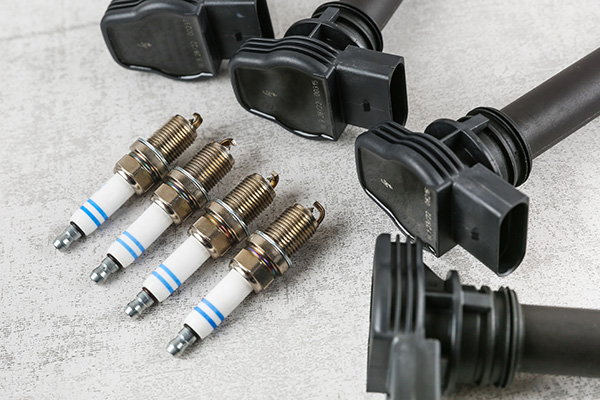
Spark plugs may be small, but they greatly affect your car’s performance. Without them, your engine wouldn’t be able to ignite the fuel-air mixture that makes your car run. If your spark plugs are worn out, you’ll notice a dip in fuel efficiency, engine power, and overall performance. So, how often should you replace them?
The Role of Spark Plugs
Each spark plug ignites the air-fuel mixture inside the engine’s combustion chamber, creating a small explosion that powers your car. Without properly functioning spark plugs, your engine won't run efficiently—or at all. Over time, these plugs wear out, leading to misfires, rough idling, and even starting problems. If left unchecked, faulty spark plugs can cause engine damage, making routine replacements an essential part of car maintenance.
How Often Should Spark Plugs Be Replaced?
There isn't a one-size-fits-all answer when it comes to replacing spark plugs because it largely depends on your vehicle, the type of spark plugs you have, and how you drive. That said, most manufacturers recommend replacing them every 30,000 to 100,000 miles. This wide range is due to the different materials used in spark plugs, which affect their lifespan.
Here’s a general breakdown:
- Copper spark plugs: These have the shortest lifespan and generally need to be replaced every 20,000 to 30,000 miles.
- Platinum spark plugs: Platinum plugs last longer, often around 60,000 to 100,000 miles.
- Iridium spark plugs: Known for their durability, iridium plugs can last over 100,000 miles in some cases.
Always check your owner’s manual for the specific recommendations for your vehicle.
Signs It’s Time to Replace Your Spark Plugs
Even if you’re not keeping track of the mileage, your car will give you signs that it’s time for new spark plugs. If you notice any of the following, it might be time to replace them:
- Decreased fuel efficiency: If you find yourself stopping at gas stations more often, worn spark plugs could be the culprit.
- Trouble starting your car: If your car struggles to start or doesn’t start at all, worn plugs might be causing weak sparks.
- Rough idling: Is your engine stalling or vibrating while idling? This is a common symptom of faulty spark plugs.
- Engine misfires: If your engine misfires, causing jerking or loss of power while driving, it could be due to failing spark plugs.
- Check engine light: A faulty spark plug might trigger the check engine light, which is often the first warning sign.
The Impact of Driving Conditions on Spark Plug Lifespan
Driving conditions can have a significant impact on how often you need to replace your spark plugs. If you do a lot of stop-and-go driving in the city, your spark plugs may wear out faster than someone who primarily drives on highways. Harsh conditions like extreme weather, towing heavy loads, or driving in dusty areas can also reduce the lifespan of your spark plugs. Regular inspections will help you determine if your spark plugs need to be replaced sooner than the manufacturer’s recommendations.
Why It’s Important to Replace Your Spark Plugs on Time
Neglecting spark plug maintenance can lead to serious engine problems over time. Worn or damaged spark plugs can cause incomplete combustion, which may lead to carbon build-up inside the engine. This can increase fuel consumption, affect performance, and even cause engine failure if left unresolved. Regular replacement keeps your engine running efficiently and ensures better fuel economy.
If you’re unsure when to replace your spark plugs, let us help! At Bud’s Auto Repair & Transmission, our experienced technicians can inspect and replace your spark plugs, ensuring your engine runs at peak performance. Stop by today!